So you might wonder... what is the deal here, anyway.... so here is a little history and some context.
Bosnia and Hercegovina (abbreviated BiH) is a country. It has been recognized as such since 1992, after it broke away from the former Yugoslavia (it was a republic within the former Yugoslavia). Before the war, BiH was one of the most diverse and well-integrated places on the planet, from all accounts I have heard. Serbs, Muslims, Croats lived together and while there were some tensions over culture, resource allocation, traditions, and ownership, things were fairly copesetic.
The part of the country that is Bosnia is the predominantly Muslim area (including Sarajevo) and the part that is Hercegovina (including Mostar) is the predominantly Croat part. So this answers the age-old question, "what is Hercegovina anyway?" It is pronounced "hurts-uh-go-vee-nah." rolls off the tongue!
You've probably heard of the Dayton peace talks or the Dayton agreement... it is very important! At that meeting in lovely Ohio in 1995, the US (go Clinton!) was able to help broker an agreement between the three fighting factions to share Bosnia and Hercegovina.
The Muslims and Croats in BiH have a power-sharing government (called "the Federation") and it is amazing actually, because they were able to put together enough of a truce not to split Bosnia-Hercegovina in to different countries. The Federation of BiH (Muslim & Croat) has control of 51% of the government and the Republic (Serbs) have control of 49%. In this way, the agreement encourages the federation to cooperate because if they don't, each group will become a minority in terms of the power-sharing, so it is to their benefit to try and get along and work together so that the Serbs do not gain the majority votes.
The prime minister of BiH is supposed to rotate between a Muslim Bosniak), a Croat, and a Serb. Seems reasonable enough.
There is also a Serb part of Bosnia-Hercegovina, called Republika Srpska (R.S., Serb Republic, or simply "the Republic"). They have their own organizational center in Banja Luka (actually close to Croatia). These guys would like to be part of a "greater Serbia," but they lost the war, so they are kind of sulking in their little Serb territories here (as I have been told-I sped through these areas on the train and did not disembark). These territories were some of the hardest hit during the war, because the Serbs were trying to literally clear out or kill everyone who was not Serb in these areas. They were frighteningly successful (due in part to the impotence of the world community's response to the atrocities committed here).
Actually, there is also a Serb part of Sarajevo, called "East Sarajevo" with its own bus station, etc. I have not gone there and will not go. The idea of it reminds me of East-West Berlin. It is not a good idea to draw these kinds of lines between people, saying "this is the place where me and mine can live and that over there is for you and yours." this only leads to the kind of yearning for home that caused this horrible war (and most wars, let's face it) in the first place.
In the immortalized words of Rodney King, "Can't we all just get along?"
Me and Anne Frank
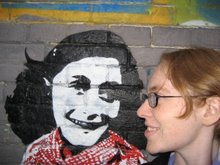
Day 1: Amsterdam
Most Important Posts to Read
- Why Croatia and Bosnia-Hercegovina?
- What's Up With Bosnia-Heregovina (BiH)
- Sarajevo
- Siege of Sarajevo
- Sarajevo Tunnel
- Sarajevo Roses
- Fantastic Meeting (Sarajevo)
- I Left My Heart in Sarajevo
- WWI and Sarajevo
- The Orient Express (Zagreb-Sarajevo)
- The (new) Old Bridge of Mostar
- When in Sarajevo...
- International Criminal Court
- International Criminal Tribunal on the former Yugoslavia
- My First Mosque
- Self-Defense
Subscribe to:
Post Comments (Atom)
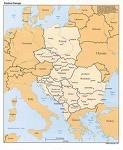
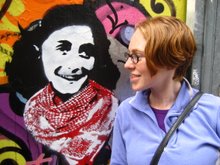
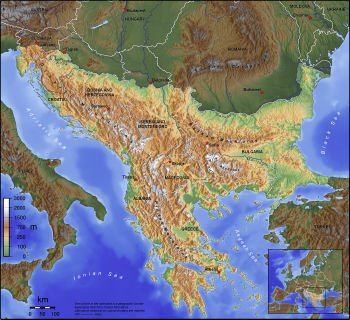
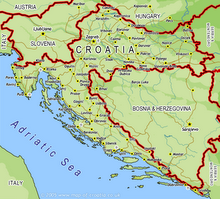

No comments:
Post a Comment